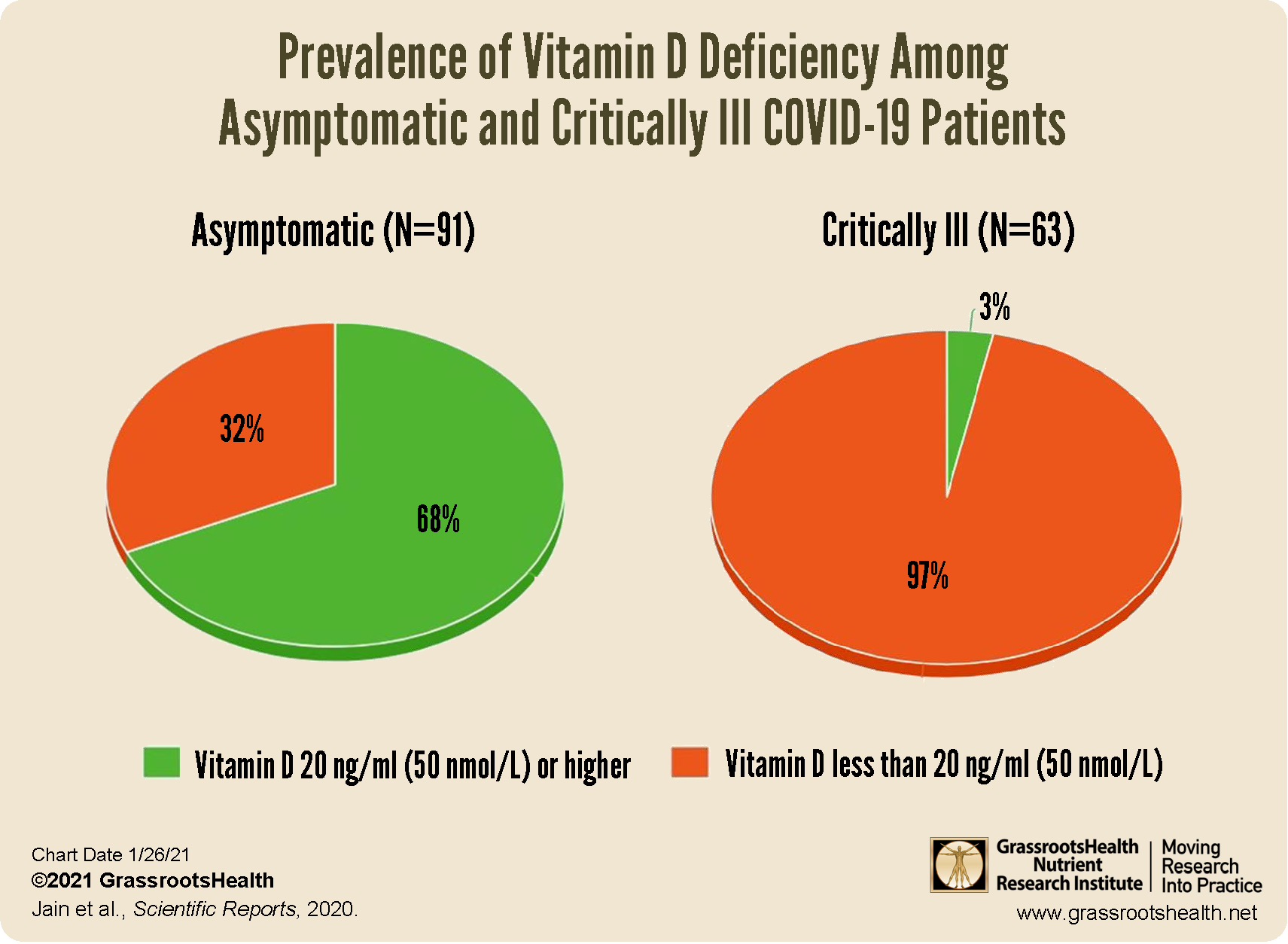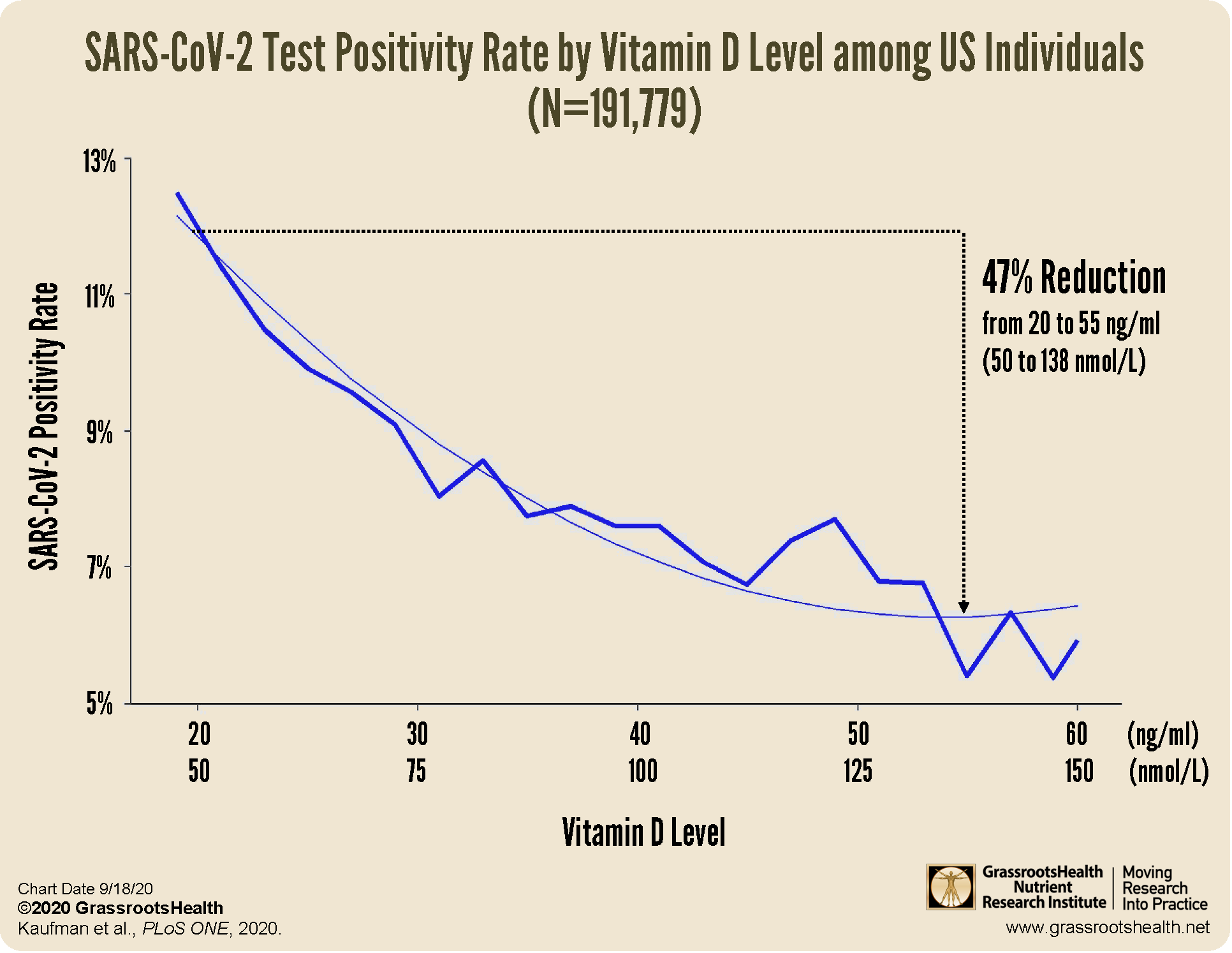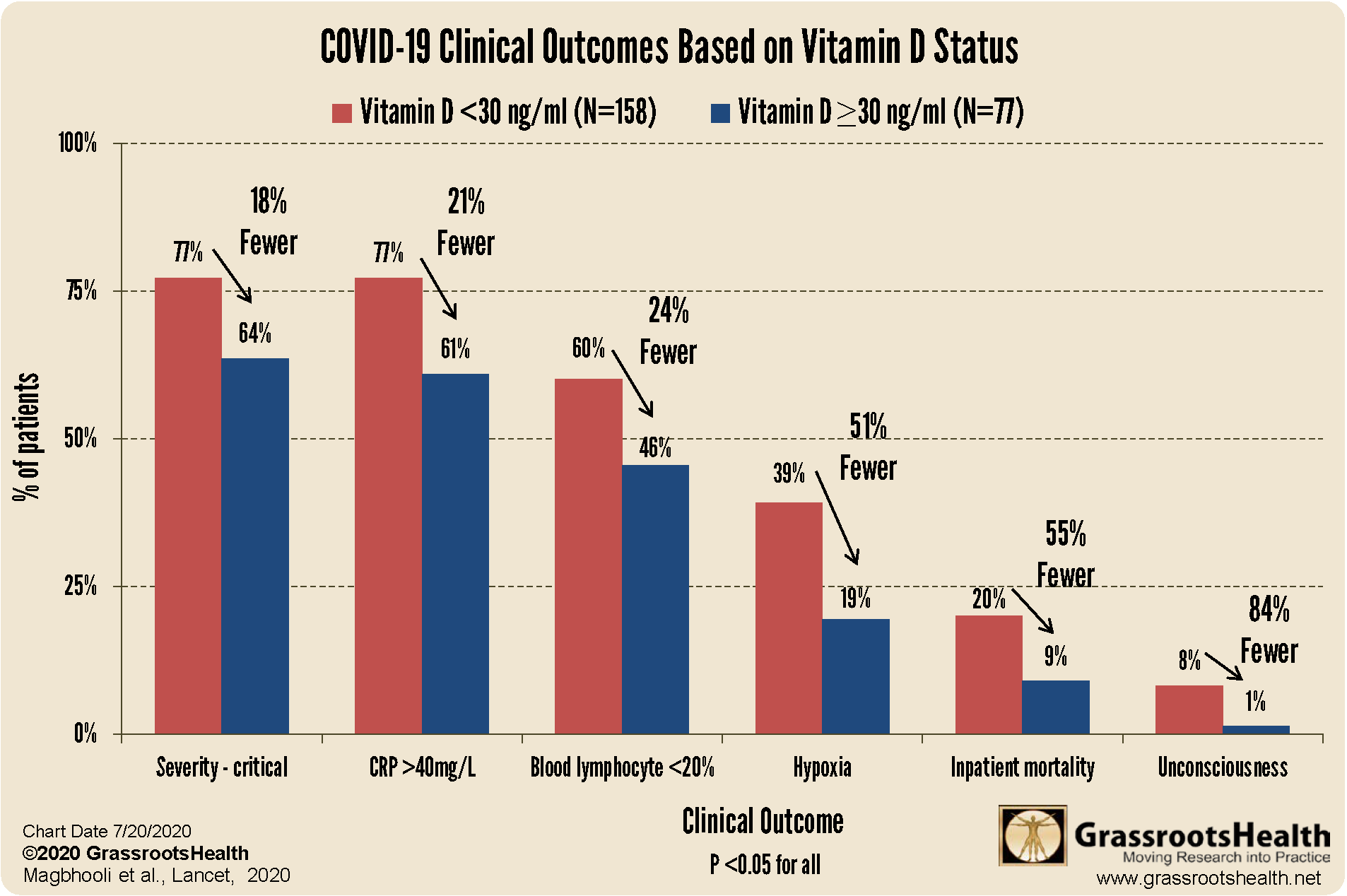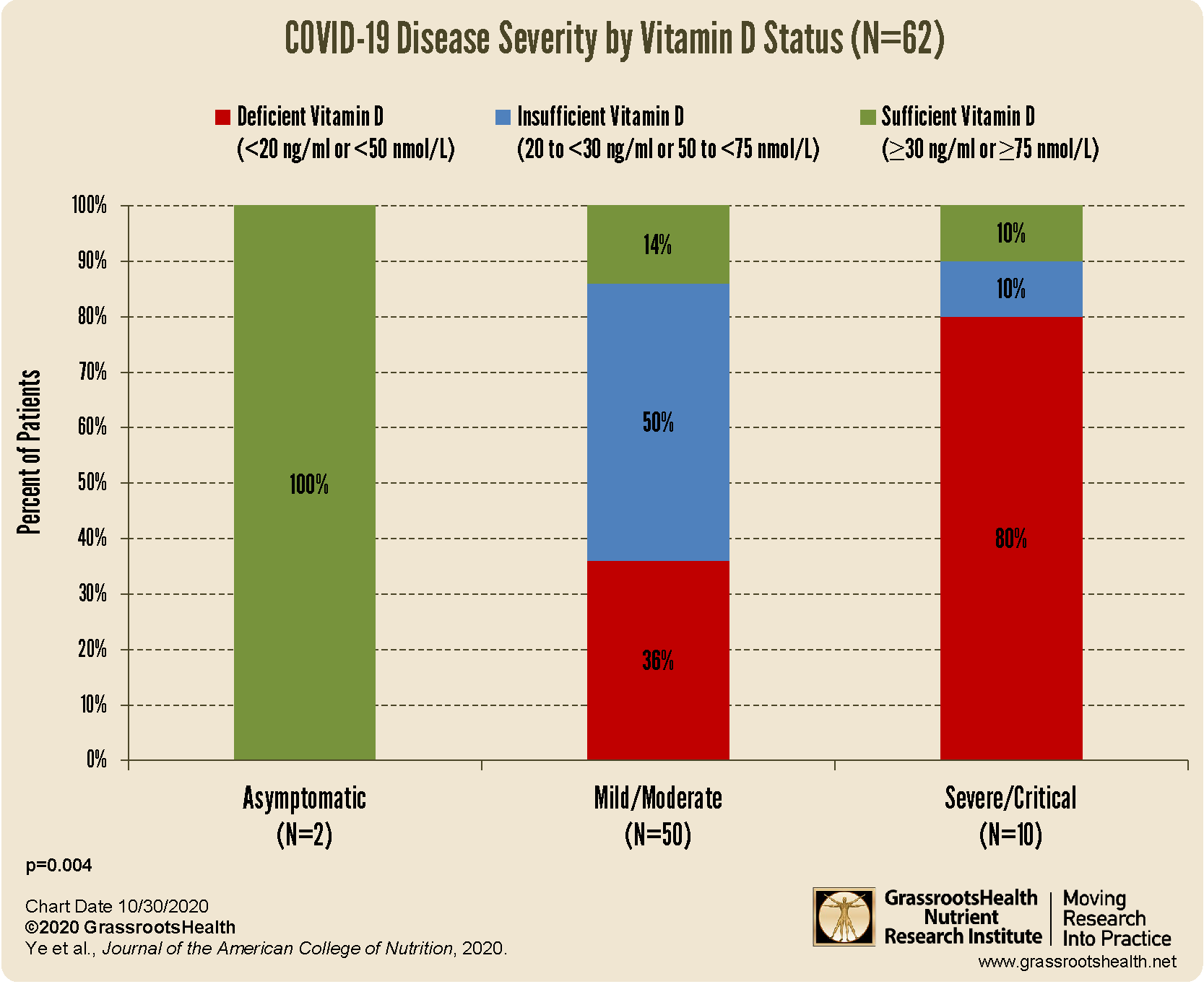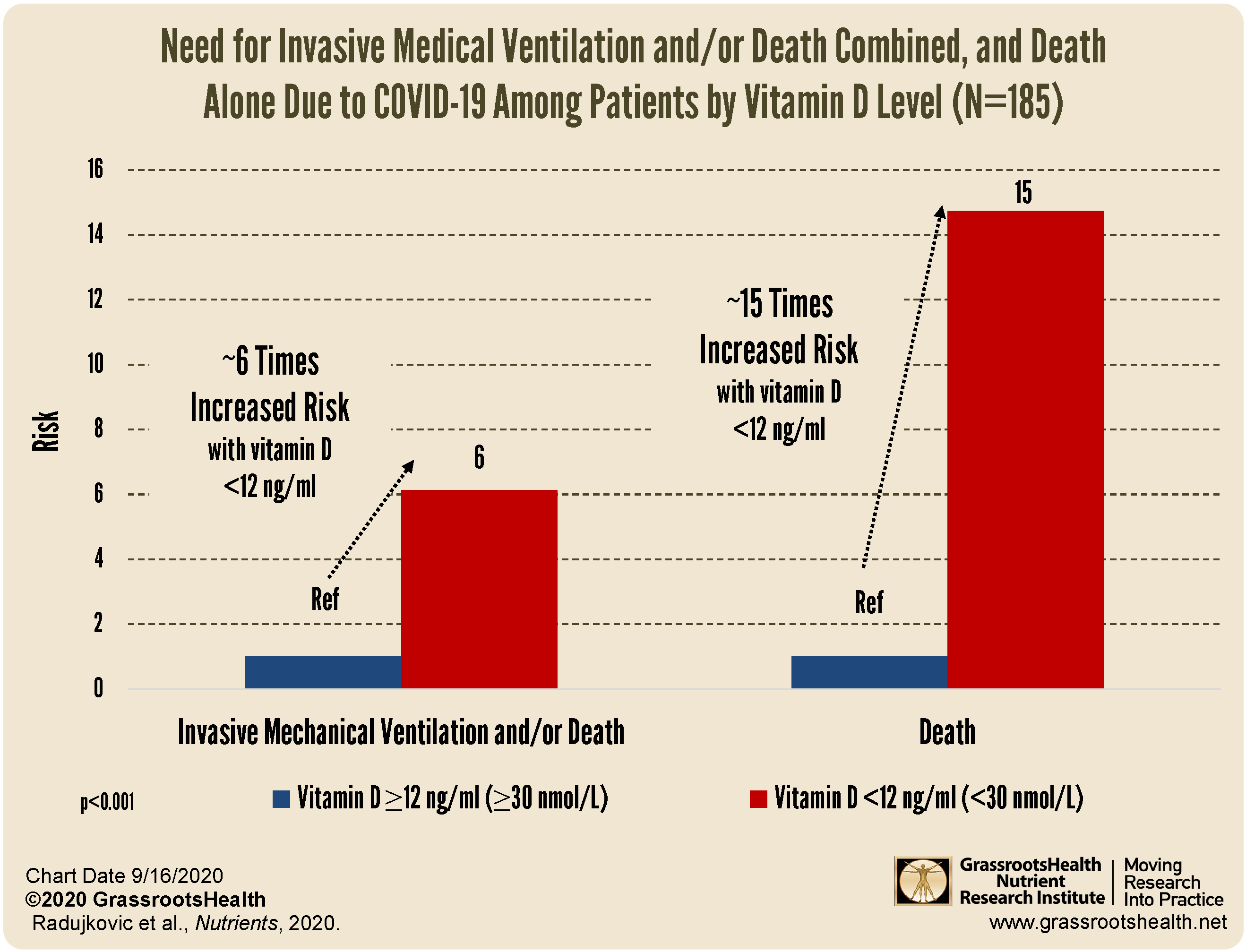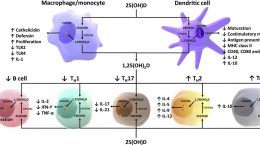Published on January 26, 2021
97% of critically ill COVID-19 patients presented with vitamin D levels below 20 ng/ml (50 nmol/L) vs 32% of asymptomatic patients
 Vitamin D is essential for maintaining a proper immune response – from helping immune cells to carry out specific functions during an infection and modulating the genetic expression of immune cells, to having a direct effect on the lungs and inflammation, vitamin D has been shown to decrease the risk of respiratory infection, complications from acute respiratory distress syndrome (ARDS), and COVID-19.
Vitamin D is essential for maintaining a proper immune response – from helping immune cells to carry out specific functions during an infection and modulating the genetic expression of immune cells, to having a direct effect on the lungs and inflammation, vitamin D has been shown to decrease the risk of respiratory infection, complications from acute respiratory distress syndrome (ARDS), and COVID-19.
Once infected with the SARS-CoV-2 virus, approximately 30-40% of people experience only mild symptoms of COVID-19, 40-45% do not develop any symptoms, and fewer than 15% of cases become severe. Several risk factors have been identified that contribute to the increased risk of severity and death from COVID-19, including obesity, diabetes and hypertension. Vitamin D deficiency has also shown to be a significant, independent risk factor for COVID-19 severity, and thankfully, it is easy to identify and treat.
Vitamin D Levels Among Asymptomatic vs Critical COVID-19 Patients
An observational study by Jain et al. looked at 154 patients positive for COVID-19, ages 30-60 years old, who were admitted to a tertiary COVID-19 care center over a span of 6 weeks in 2020. Of the patients, 91 were asymptomatic, displaying no symptoms over 12 days from testing positive. These patients were compared to 63 others who developed severe enough symptoms to require admission to the Intensive Care Unit (ICU). Overall, those were critically ill and admitted to the ICU were more likely to be male and were older on average.
Vitamin D levels were compared between the groups and the difference was found to be highly significant (p=0.0001). The average vitamin D level in the asymptomatic group was 28 ng/ml (70 nmol/L) with 29 patients (32%) having levels below 20 ng/ml or 50 nmol/L (labeled as being deficient). The average vitamin D level in the critically ill group was 14 ng/ml (35 nmol/L) with 61 (97%) below 20 ng/ml. The pie charts below clearly show the break-down of those whose vitamin D levels were deficient in the asymptomatic group and the critically ill group.
Inflammatory markers were higher among those with vitamin D deficiency, as was the fatality rate. 21% of the patients with vitamin D deficiency (below 20 ng/ml or 50 nmol/L) died compared to only 3.1% of those without vitamin D deficiency.
In Conclusion
The authors of this paper conclude with recommending “mass administration of vitamin D supplements to populations at risk for COVID-19.” Vitamin D supplementation is safe, inexpensive, and easy to implement, and avoiding vitamin D deficiency has many other health benefits.
The statistics for COVID-19 severity and fatality clearly show a decreased risk with higher vitamin D levels, however, there is no one dose suggestion for everyone (one person may need only 2,000 IU/day while another may need 10,000 IU/day to achieve the same result) – and the ONLY way to know if you are getting enough or getting too much vitamin D is to test your blood level and adjust your dose to reach the scientists’ recommended 40-60 ng/ml (100-150 nmol/L).
Make sure you are getting enough vitamin D and other important nutrients
By joining the GrassrootsHealth projects, you are not only contributing valuable information to our study, but you are also gaining knowledge about how you could improve your own health through measuring and tracking your nutrient status, and educating yourself on how to improve it. Do you know what your status of vitamin D, omega-3s, and other essential nutrients is? Could your levels be improved? Test now to find out!
 We now have a NEW GIFTING SERVICE that allows you to quickly send ‘Gift Cards’ to friends, family and coworkers who you consider might need immediate access to testing, and to Claim the Joy of Your Health TODAY. Give the gift today!
We now have a NEW GIFTING SERVICE that allows you to quickly send ‘Gift Cards’ to friends, family and coworkers who you consider might need immediate access to testing, and to Claim the Joy of Your Health TODAY. Give the gift today!
What does the Research Say about Vitamin D & COVID-19?
It’s TIME to start saving lives! If you can help PREVENT the majority of the death, it’s time! What’s it costing you/us not to take action NOW?
There is much published research that supports a clear link between vitamin D and COVID-19 showing that higher vitamin D levels are related to:
a decreased risk of testing positive for COVID-19
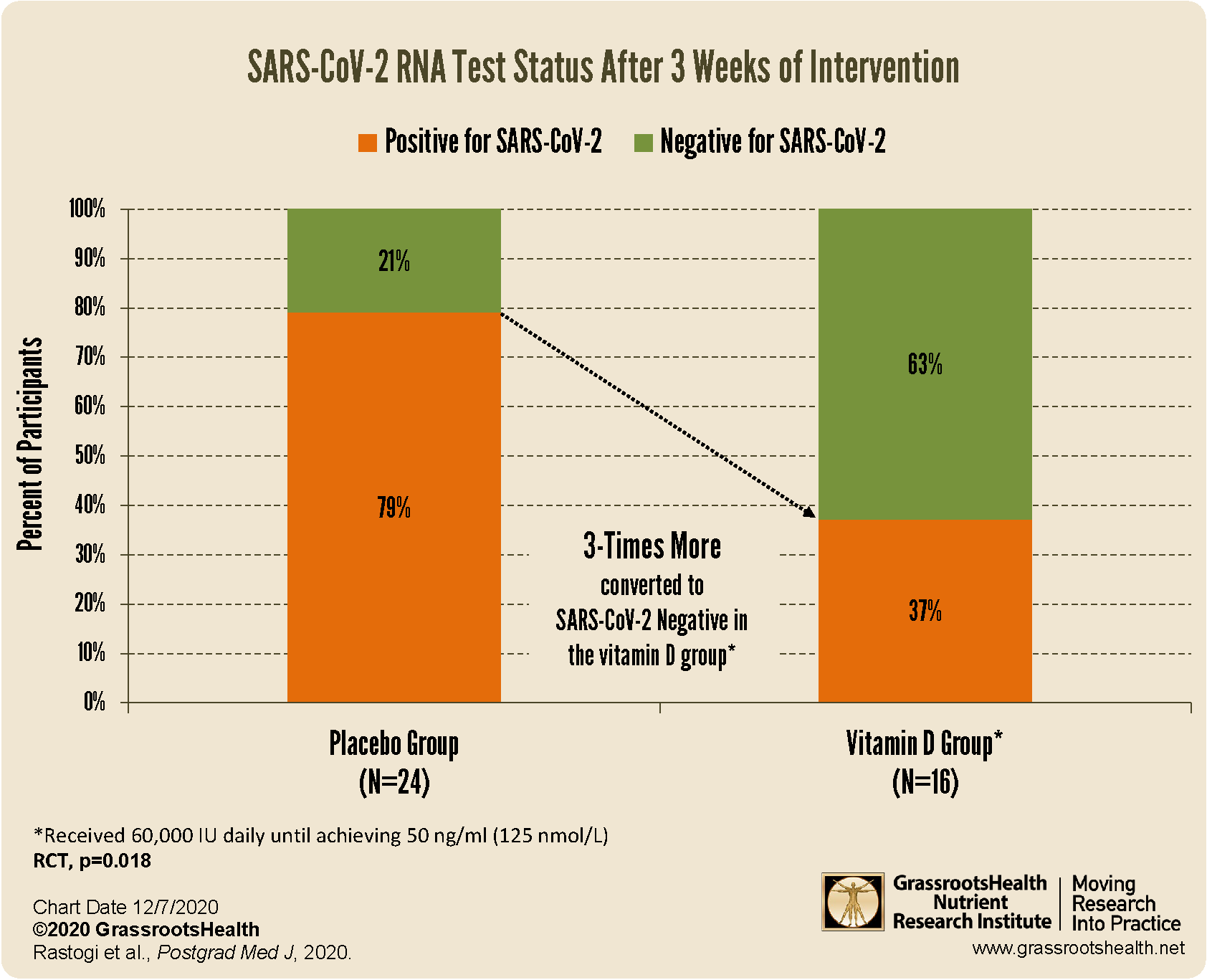 increased viral SARS-CoV-2 RNA clearance
increased viral SARS-CoV-2 RNA clearance
better clinical outcomes among patients with COVID-19
decreased risk of death due to COVID-19
Be sure to educate yourself on the benefits and importance of vitamin D for immune health, and take steps to ensure you and your loved ones are getting enough.
You can review all of the COVID-19 and immune health information we have shared on this page.


